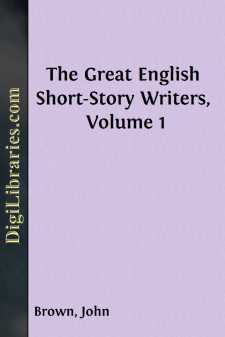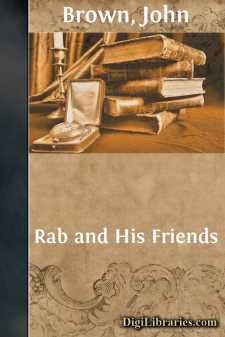Categories
- Antiques & Collectibles 13
- Architecture 36
- Art 48
- Bibles 22
- Biography & Autobiography 813
- Body, Mind & Spirit 142
- Business & Economics 28
- Children's Books 17
- Children's Fiction 14
- Computers 4
- Cooking 94
- Crafts & Hobbies 4
- Drama 346
- Education 46
- Family & Relationships 57
- Fiction 11829
- Games 19
- Gardening 17
- Health & Fitness 34
- History 1377
- House & Home 1
- Humor 147
- Juvenile Fiction 1873
- Juvenile Nonfiction 202
- Language Arts & Disciplines 88
- Law 16
- Literary Collections 686
- Literary Criticism 179
- Mathematics 13
- Medical 41
- Music 40
- Nature 179
- Non-Classifiable 1768
- Performing Arts 7
- Periodicals 1453
- Philosophy 64
- Photography 2
- Poetry 896
- Political Science 203
- Psychology 42
- Reference 154
- Religion 513
- Science 126
- Self-Help 84
- Social Science 81
- Sports & Recreation 34
- Study Aids 3
- Technology & Engineering 59
- Transportation 23
- Travel 463
- True Crime 29
The Great English Short-Story Writers, Volume 1
by: John Brown
Categories:
Description:
Excerpt
I
The short-story commenced its career as a verbal utterance, or, as Robert Louis Stevenson puts it, with "the first men who told their stories round the savage camp-fire."
It bears the mark of its origin, for even to-day it is true that the more it creates the illusion of the speaking-voice, causing the reader to listen and to see, so that he forgets the printed page, the better does it accomplish its literary purpose. It is probably an instinctive appreciation of this fact which has led so many latter-day writers to narrate their short-stories in dialect. In a story which is communicated by the living voice our attention is held primarily not by the excellent deposition of adjectives and poise of style, but by the striding progress of the plot; it is the plot, and action in the plot, alone which we remember when the combination of words which conveyed and made the story real to us has been lost to mind. "Crusoe recoiling from the foot-print, Achilles shouting over against the Trojans, Ulysses bending the great bow, Christian running with his fingers in his ears; these are each culminating moments, and each has been printed on the mind's eye for ever."[1]
[Footnote 1: A Gossip on Romance, from Memories and Portraits, by
R.L. Stevenson.]
The secondary importance of the detailed language in which an incident is narrated, when compared with the total impression made by the naked action contained in the incident, is seen in the case of ballad poetry, where a man may retain a vivid mental picture of the localities, atmosphere, and dramatic moments created by Coleridge's Ancient Mariner, or Rossetti's White Ship, and yet be quite incapable of repeating two consecutive lines of the verse. In literature of narration, whether prose or verse, the dramatic worth of the action related must be the first consideration.
In earlier days, when much of the current fiction was not written down, but travelled from mouth to mouth, as it does in the Orient to-day, this fact must have been realizedвÐâthat, in the short-story, plot is superior to style. Among modern writers, however, there has been a growing tendency to make up for scantiness of plot by high literary workmanship; the result has been in reality not a short-story, but a descriptive sketch or vignette, dealing chiefly with moods and landscapes. So much has this been the case that the writer of a recent Practical Treatise on the Art of the Short-Story has found it necessary to make the bald statement that "the first requisite of a short-story is that the writer have a story to tell."[2]
[Footnote 2: Short-Story Writing, by Charles Raymond Barrett.]
However lacking the stories which have come down to us from ancient times may be in technique, they invariably narrate actionвÐâthey have something to tell. If they had not done so, they would not have been interesting to the men who first heard them, and, had they not been interesting, they would not have survived. Their paramount worth in this respect of action is proved by the constant borrowings which modern writers have made from them....




